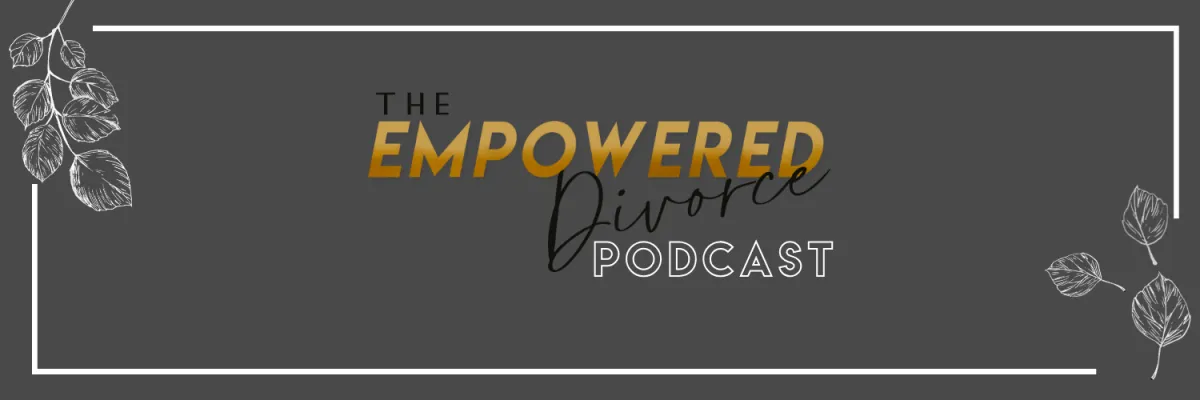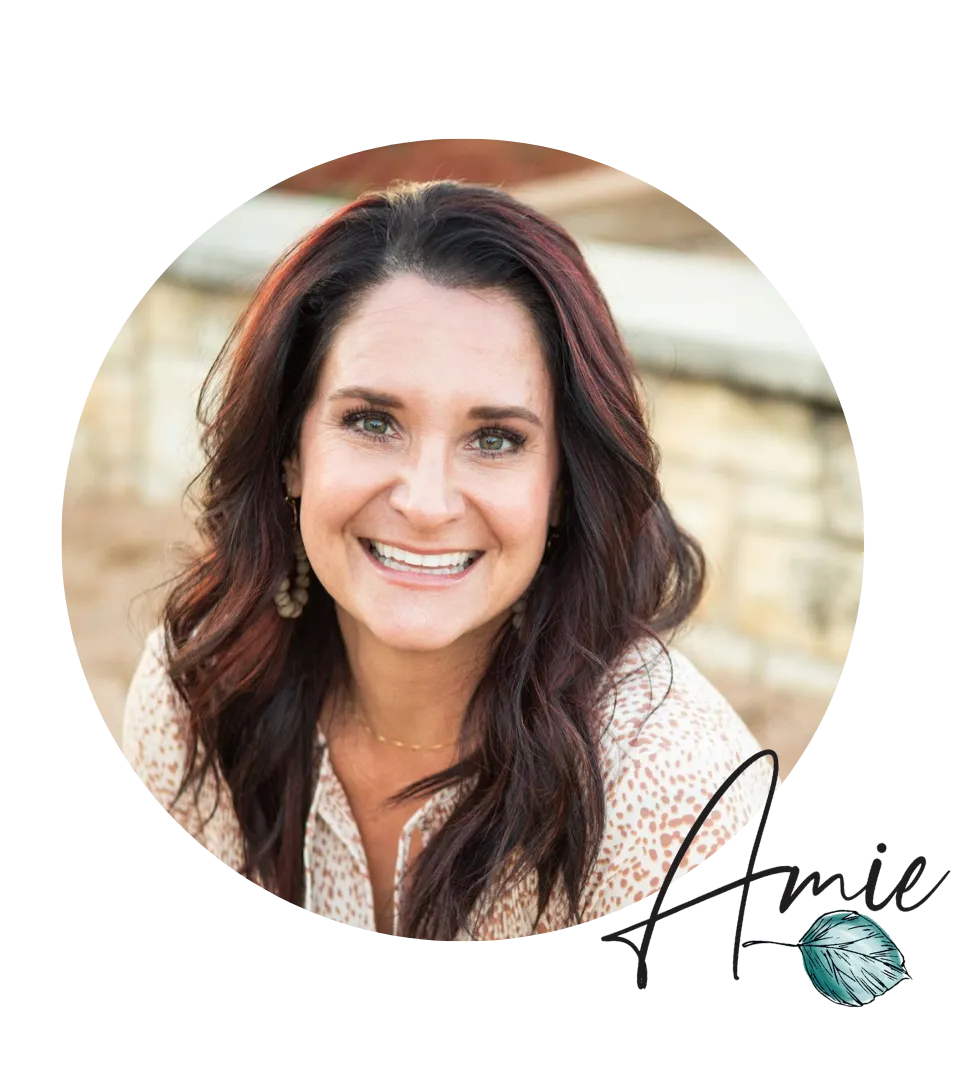
147. Post Traumatic Growth: Remembering YOU
Have you been caught in the loop of everything you've lost since the betrayal or your life-saving divorce? It’s so easy for our brains—especially when we’re still in survival mode—to focus on what’s gone and what may never be again.
In this episode, I want to gently shift that lens with you. I’ll help you see that healing and growth don’t come from ignoring your pain—they come from reclaiming what’s still yours. Your strength. Your voice. Your wisdom. Even if those parts feel buried right now.
I’ll talk about how trauma wires the brain to detect threat, how your nervous system plays a huge role in your healing, and how post-traumatic growth becomes possible when you start to notice what you haven’t lost. I also share a few personal stories that shaped this journey for me.
• Why your brain focuses on loss (and how to shift it)
• The difference between reflecting and ruminating
• How to start identifying what’s still within you
• Why nervous system safety is the foundation of growth
Read Full Transcript
Hello? Hello, my amazing, beautiful listeners. Thanks for joining me. How are you today? how are you feeling? What thoughts are you noticing the most? Just say in the last 24 hours? If you were to reflect in the last 24 hours, would the majority of your thoughts be more about how you can't, how you'll never, are they more thoughts around what you've lost and what perhaps you'll never have again?
Or have you started to think about possibilities, about what you can gain back, even if you've lost it in the aftermath of betrayal and a life-saving divorce. It is so easy, so easy to get caught up in the narrative of. Everything that you've lost. part of your healing comes from shifting your focus to what you've lost, to what you haven't lost or what you've even gained.
in this episode, I wanna walk you through. A very tender terrain of grief. I wanna validate why this conversation can also be very triggering when you are still in survival mode. I wanna offer you a new lens that is rooted in this post-traumatic growth and the neuroscience of it.
Because this isn't about bypassing your pain in any way. This is about reclaiming the truth of who you are. Anchoring into that whole complete enough, still strong you
when you are in the thick of trauma, when things are raw, when court decisions may be very recent, when 50 50 custody is still new and everyone's still trying to wrap their head around this new schedule and back and forth can feel impossible to see anything beyond the wreckage, the wreckage that this person created.
The wreckage that you and your children are being impacted from,
let's be honest, talking about what you haven't lost might feel very minimizing and dismissive when you are in this particular part of your journey. I promise I'm not doing the toxic positivity thing here today. We are honoring both the pain. And the power that absolutely still lives in you. And more than anything, in order to have an empowered divorce, we have to believe that somewhere, even if it feels , buried, deep inside, we have to believe that there is light inside you, that there is empowerment inside you, that there is will to move forward and to grow inside of you.
This light lives, and. Nothing that, that person who harmed you did nothing they did can take that light away from you. Sometimes we just don't see it anymore, but it doesn't mean it's not there. This episode isn't here to tell you to get over it and just move on, I promise. What I really wanna do today is just gently remind you of what still belongs to you, your resilience, your wisdom, your intuition, and to help you hold onto it like a life raft. First of all, It is so helpful to remember. You have a human brain. It is so helpful to remember that your brain, the neurobiology of trauma and your brain, it is now wired to detect threat loss, not abundance and possibility. This is a negativity bias and because you've had this ha, this trauma happen to you, you have this bias now part of your neurobiology.
It is one of those things that just comes with. Experience of being a human. but it doesn't mean that this part of our brain needs to or has to run our entire life. it's so helpful and I always remind myself, I have a human brain. I have a human brain, and it's designed to do three things, seek pleasure, save energy, and avoid pain.
That is it. it loops around. Loops around, loops around. Our human brain is not designed. To focus on possibility, to focus on growth, to focus on the positive. And when I say positive, again, that's not to minimize the pain,
but your brain isn't focused on any post-traumatic growth goal. It just isn't wired to do that. It's wired to keep you safe. in order to keep you safe, it has to detect threat. And when you've had such intense threat. it's going to be wired in a more intense way to detect threat in areas that perhaps other human brains that haven't experienced this aren't wired.
Doesn't mean something is wrong with you.
When I remind myself that I have a human brain and it's doing a human brain thing, helps neutralize what's happening and the intensity that I might be feeling in my life around what's happening.
a couple years ago, my sister came down here to Austin to visit. And so we went downtown, walked on fifth Street, went to this really cool ping pong bar and just had a blast. My daughter my sister and I, and it was midday we're walking down fifth Street and we. passed several homeless people that were camped out along the road.
And there's one particular homeless man I remember noticing as we were walking to the ping pong bar and totally sound asleep. Didn't even make eye contact. Just happened to notice. It was a very, very tall man. That's why I noticed and was like, wow, he's really, really tall. Anyways, we were walking back from several hours later, walking back from the ping pong bar on the same street and this very, very tall homeless man was now awake and walking towards us.
I mean, we're talking seven foot plus tall man, so you can't miss the guy. Right. he was walking towards us and my daughter had a cookie from the bar that we had been at. She was holding in her hand and he walked up and grunted and pointed at her cookie and took us off guard. 'cause he didn't say, can I have that?
He just pointed and, and took again, took us off guard and my daughter literally would've given the shirt off her back. I mean, not kidding. In fact, we would've emptied our pockets to help the homeless in all honesty. But we weren't quite sure what he was trying to communicate.
It happened so fast that before my daughter even and any of us recognized that he was pointing at the cookie, that's what he wanted. And we could even offer it. 'cause no problem here, have it. Right. He was charging after my sister had his hand around her throat pushing up against the meter.
I'm trying to rip his hand off of her. I am screaming, my daughter's screaming. I'm, we, I get his hand free. We start running. I mean, all of this happened so freaking fast. It ended up being a pretty drawn out, dramatic experience. Come to find out he was on one of those drugs that gives them about a 15 minute window of psychosis and.
We were being chased by this guy. It was, it was one of the scariest experiences I've had, and I've never had a negative prior experience with anybody homeless in my city before.
In fact, we keep things in our car to hand out to homeless. I've, I've never had this thought in my mind that they're dangerous in all honesty, until this experience where he was literally choking my sister and it chasing us. And it was, it was quite traumatic. Well. I tell you all of that because my son husband's son and I just got back from Chicago.
We of course wanted to go see Wrigley Field and he was doing his senior trip and that's where he wanted to go. Well, the entire time we're on the streets and on the L train and walking around Chicago, my brain, anytime we passed homeless, my brain went to that traumatic experience with that previous homeless man.
Where before I had never had those thoughts around homeless. And so now because of this trauma in my brain, my brain is now wired to detect threat from every single person that remotely resembles the attack. That happened on my sister and my daughter and I, I have to be so vigilant and conscious every single time to try not to judge every single homeless person, to try not to let my brain take over that neural wiring and view every single person on the street as a threat. This is just an example outside of betrayal trauma outside of, divorce of what our brain can do brilliantly to protect us, but we also have to be in charge of it.
I don't want to look at every single homeless person as a threat. I wanna look at every homeless person as a human being, and I believe in humanity. I wanna honor my value system of humanity and serve humanity. So it's really important to me to not let my brain win here just because of that one experience with this one person.
The same thing goes for maybe those of you who are right now in this stage where every single man is a threat. I remember talking about this in, an episode a while back where I was in that stage. Where every single man was a threat, and I was walking down the street on my morning walks when I lived with my parents at the time.
And if there was a man in the neighborhood on a morning walk as well, he better stay on the other side of the street. I would purposely cross the, the other side of the street to avoid I contact from any man because that's the place that I was at in my journey. every single man in my life was a threat, including God.
Which is why I only spoke to my woman, God, I did not want any man in my life to come within 50 feet of me, a hundred feet of me. That's the neural wiring of my brain at the time. What I wanna talk to you today about is being very. Cognizant and aware of the phase that you're in, not to shame yourself, but to not let that phase win, to not let your brain get stuck in that neural wiring where it is wired for that threat.
Where it's hypervigilant, where it's detecting loss, where it's detecting scarcity, not abundance, where it's detecting impossible rather than possible. We don't wanna get stuck there. I just wanna validate that it's normal and common in so many different areas of our life. For our brain to stay there for a time, we just have to be vigilant because of the hypervigilant loop.
Trauma trains that nervous system to scan for danger. It's not just a brain thing, it's your nervous system thing, which is why this is not something that's just snap your fingers and get over either. if I can say this a million times, I will. Please, please, please be very kind, gentle, and patient with yourself during this shift
because your nervous system is scanning. ' cause it's not just the wires in your brain, it's your nervous system. Scanning for danger. It's not going to pause and appreciate the internal. Resources that you have. There's the difference between interception or a proto self. All of these different terms are turning towards you.
Looking inside. What we're trained to do because of this trauma is look outside. We have so many parts that are now looking away from our internal locus of control. the internal locus of control is your. Light your higher self. The part of you that I was saying before that isn't broken, that isn't damaged, that isn't weak, the part of you that survived everything that you are going through, when we're not quite sure.
Who that person is anymore. We can have an identity, confusion after betrayal, especially after the abuse of gaslighting, DVO dynamics. There is a collapse of self. Who? Who even am I anymore? That is so normal when you've gone through what you've gone through, neuroplasticity says your brain can change and adapt.
That's is the most amazing. Phenomenon of our bodies is this neuroplasticity and ability to rewire our nervous system, because what you focus on grows. This means if you begin to intentionally notice what you haven't lost versus what you have.
I mean, you start focusing what on what you can do rather than what you can't or maybe never will do again. You are literally rewiring your brain towards healing.
A simple way to test this out is the next time you're driving, just pick a color. Pick a color, and just start noticing that color and see how often you now notice the color blue. For example, when I bought my four runner, I wanted a blue four runner because no one had a blue four runner in my area, and I love the idea of having something that no one else had.
So I bought it. I bought the blue front four runner, and guess what? All I see. Everywhere in my area is blue. For runners, what we intentionally notice. We see when I want to see how annoying my husband can be when he chews, I will most definitely see it and hear it When I wanna see that I'm capable, I see it. When I was single, I was definitely not thinking that I was capable of growing my cleaning business. I was definitely not believing that I was capable of providing for my children alone. I was feeling very incapable and scared out of my mind, but I decided that I needed to shift my thoughts and I prayed and I prayed and I prayed to know how to grow my business and I started to think of all different ways and ideas and I possibilities, even though I really didn't have anything stick at the time, nothing was really standing out.
I just kept thinking, I. I'll figure it out. I'll figure it out. I'll figure it out.
Because I did believe in my ability to clean, to manage. I believed in my ability to communicate. I believed in my ability to be trustworthy for people to allow me into their home. I. I believed in my ability to know basic business skills, and I believed in my ability to work with the motivation to support my children.
And I believed in myself enough to just keep thinking about different ideas. Well, one day I was praying extra hard. things were really starting to get tight. After a really long day's work, I was on my way home and I was driving into my apartment complex and I was driving past the office through the gates.
I just felt really, really strongly like I needed to go into my office apartment complex office. No idea why. I honestly, and it, I was not in the mood. I, like I said, I had a really long day, but this thought go into the office, go into the office was so strong. I just thought, all right, whatever. I was cleaning my apartment complex at the time, so I knew my manager.
And so I thought I'll just go in and say hi. Anyways, I walk into the office, I see her in her office with a gentleman, and I just thought, oh, see, whatever. I'm just losing my mind. So I just turned around and walked away. But as I was walking away. She frantically waved her arms down and and caught my attention and waved me into her office, and she introduced me to the gentleman who was the general manager of this apartment complex, as well as eight other apartment complexes in the area.
She introduced me to him, mentioned that I cleaned the apartment complex, that I do a really good job and that I'm looking for more work now. I do not remember telling her that I needed more work. That's not. Professionally speaking, I wouldn't have done that. So I'm just gonna chalk that up to, she's a woman and just knew.
But she tells this general manager that I'm looking for more work. He goes, well, tell you what, I live around the corner. Why don't you come clean my house? And if I like your work, I'll give you all eight apartment complexes that I manage. Of course, I took the job. Week later, after one cleaning, he gave me the rest of the apartment complexes.
What if I had doubted myself? What if I had not believed that I was capable of growing that business? What if I said there's no way I'll never be able to grow this business on my own. I don't know how. It'll never work. It'll never happen.
But that wasn't my thinking at the time. I had no idea how it would happen, but my thinking was, I'll figure it out. I'll figure it out. I'll know when I see it. It'll work out. The idea will feel right when it comes to me. That little huge energetic shift made all of the difference, because I didn't doubt the thoughts that came, that didn't make sense.
If I was in the mindset of I don't know anything, I don't know how to ever work out. That's stupid. What a dumb idea. I wouldn't have walked into that office. Right? the energetic, neurobiological, central nervous system shift that happens, y'all. When you start shifting your thinking to, I can, I'll figure it out.
I'll make it work. I have the ability it matters. Post-traumatic growth theory by eski in Calhoun in 2004 shows us that people who make these types of shifts in their thinking. Report, increased inner strength, deeper relationships, spiritual growth, and a stronger sense of self after trauma. those are the results that came from their study in 2004.
Increased inner strength. I'm gonna repeat this. Deeper relationships, spiritual growth in a stronger sense of self after trauma. But here's the kicker, only when they have space to integrate and make meaning. Growth isn't automatic after trauma. It doesn't just happen. It's not the pain alone that transforms us.
It's what we do with the pain. I'm sure you've heard that so many times, but it's literal,
this phrase, only when they have space to integrate and make meaning, will they have traumatic growth? Will they have growth after trauma? Integration means taking the fragmented. Overwhelming disorganized experiences and slowly interweaving them into the story of who you are. Trauma shatters that sense of self.
There's no denying that every single one of you listening to me have experiences and are probably right in the thick of it. Some of you,
it leaves. Memories of your past relationship disjointed. What was real, what wasn't? Was it all fake? Is it not? Was it love, disjointed beliefs upside down. I thought he was trusting, but it wasn't. I thought I had a good gut, but I don't. then your identity totally scrambled. Wait, who am I? Maybe I'm not who I thought I was.
Maybe they aren't who they thought they were. So the integration of this process of post-traumatic growth is a process. You've heard me use that word so many times, process. Anytime you hear me say the word process, just right after that, just hear the word slow process is slow, slowing it down and bringing those pieces back together to a whole.
So instead of this happened to me and I'm broken now. It becomes, this happened to me and I am surviving and I survived. I learned, I changed, I am more than what was done. You are more than what was done to you. That is growth. That is believing that who you are is more than what this human experience was.
it's not just about thinking, it's not just about intellectually knowing what happened. It's about emotionally and somatically digesting what I'm saying, which is why the somatic work is so important. I, I hear this all the time when will come and be like, well, I know that I'm of worth, I know that I'm value.
I know I'm good enough. I know I'm worthy of love. I know that I wasn't deserving of how I was treated. But yet their nervous system is still believing based on how they're showing up or based on the negative thought process. Is still believing that they aren't. This is because we have those two brains, right?
We have the human brain and then we have the body, brain parts work, storytelling, 📍 coaching,
brainspotting all of this trauma-informed support is so important in your post-traumatic growth healing. To help create more of that internal safety, not just external safety.
So Esky and Calhoun emphasized in post-traumatic growth that it often requires redefining our belief system, redefining our purpose in life and relationships, and really our worldview. I cannot tell you, gosh, what, 11, 12 years out of my journey, my. post-traumatic growth has not stopped, thank goodness, and it's been really beautiful to see more of this worldview change how I wanna see the world.
So going back to the experience of being attacked by a homeless man, I didn't want that to change my worldview on how I view homelessness. I didn't want this one traumatic experience to change that, so I. Had to work really hard and intentionally to hold onto my
belief system and purpose in my community so that it doesn't shift. This traumatic experience doesn't shift my worldview, And again, I'm not promoting this toxic positivity. Everything happens for a reason. It really is deeper. It's so much deeper. I didn't want this.
I didn't choose this. I know you didn't want this, and of course you did not choose this, but you have to choose what comes next because of what you went through. What do you now understand differently because of what you experience? What do you now see and believe differently? I. It is so important to identify what that is.
I'll tell you straight up, my level of judgment went down drastically. I didn't necessarily think I was a judgmental person, but I had no idea just how judgmental I was before this went down, and it really was humbling, it's one of those things that I'm so grateful for as a post-traumatic growth.
consequence of what I experience, the way that I view divorce, the way that I view people in general is so less judgmental. I don't look at someone having a hard day and judge. I look at someone who's having a hard day and wonder what is hard in their life, I just send a lot of good reiki, high energy and love to them because If they're acting like an asshole, they're probably experiencing an asshole experience. Another post-traumatic growth belief for me is that I trust myself in ways that I have never trusted before coming out of this experience. In fact, to the point where I have lost relationships. Because of how much I trust my gut, my intuition, how much I trust my ability to detect abusive communication.
I trust it so much and have been so grateful for that bullshit detector, like it is spot on, like spot on bullshit detector.
But it's important to, differentiate meaning making because it really doesn't mean justifying the trauma. it means extracting value from the experience without being defined on by it. So here's the experience and it's separating. So I'm, I'm taking me who I am and I'm separating the experience that I had. I'm pushing it out in front of me so that I can look at it from a distance so I can look at it a little bit more neutrally rather than from a victim mindset.
Researchers call this deliberate rumination versus intrusive rumination intrusive is the looping thoughts that keep us stuck because it's inside. We're making it mean something about us inside. We're making it mean something about our ability, capability, worth value enoughness and, what we can do with our life.
From here on forward deliberate is purposeful reflection that says, who am I now and what do I wanna do with what I've learned? Remember. You have been victimized, no doubt about it because you didn't choose what happened. That choice was taken, for many of you, you lived in a relationship where choice was continually taken from you without your awareness.
That was victimization. The moment we become aware is the moment we get our agency back is the moment we get our choice back, and is the moment we become deliberate and purposeful and choose what we do with it. From that point forward,
going back to validating those of you who are in the raw, you cannot integrate or make meaning while you're still in a chronic state of survival mode because your nervous system has to feel safe enough to process. otherwise, we're reacting, not responding.
That's why your work on your nervous system, on radical acceptance, on reclaiming agency is what lies at the foundation of post-traumatic growth.
Giving yourself space to heal and giving yourself. The space from people that aren't supporting this type of growth. I just wanna validate there's gonna be grief in that as well. I was talking with a client who's in the middle of this right now, sifting through the people in her life, family friends, colleagues, People from church that she's needing to create some space from in order To really start healing her nervous system to start seeing what her truth is, what her sense of self really is. Outside of all of these people that she was always gauging her sense of self. With or from or around. And so we need space. It's absolutely necessary. You can't integrate or make meaning of everything that you've been through while you are still in chronic survival mode.
And sometimes when your autonomic nervous system is still attached to these people it's still running off that original blueprint, Then it can't regulate. Your nervous system has to feel safe enough to reflect. And if we're still people pleasing, if we're still fawning, if we're still in hypervigilant meaning really anxious if we are fight, flight, freeze, right?
All of those responses that activate the nervous system, rather than help the nervous system feel safe and centered, then you can't find the growth. You can't look inside. Make meaning of the things that you have experienced that are really traumatic. So
in order to process your trauma, our nervous system has to feel safe to not just react, but to be able to start responding. And that I will tell you is when I started to notice that my central nervous system had started to really change and shift is when things would happen from my ex.
Emails would come when I noticed that my own nervous system was not immediately having a survival. Threat reaction and I was able to respond.
That's when I went, oh, I'm, I'm noticing a change. I'm starting to make that post-traumatic growth shift.
Healing your nervous system and accessing radical acceptance. Reclaiming your ability to choose is what lays the foundation for post-traumatic growth without the necessary space to calm your nervous system down, to start creating a new blueprint, which by the way, the blueprint is that you are enough just as you are.
That you're infinitely lovable, that no matter what you're a hundred percent of worth and value the other point that I want to make as, and part of post-traumatic growth is to be able to recognize, list, identify what you haven't lost, and let that be a, a reflection guide, so to speak. So.
My invitation to you is to actually get a journal out. create a notebook where you can write down moments of reflection and start making a list of things that you haven't lost. Abilities, talents.
Characteristics, traits that you have that none of these external experiences from the other person or other people took away. I want you to think about the parts of you that have remained even if they've been buried for a while. Maybe it's your ability to have empathy. Maybe it's your grit. Maybe it's your ability to love. How many of you have been upset with your ability to love upset that you loved so much, so deeply, so long? Take that back. Own that. Be proud of that, that's yours. Maybe take your creativity back.
See that you really are creative, your intuition, your faith, your courage, your courage to leave, your sense of justice, your laughter. I've mentioned this before, that memory I have of laughing after I had left, and hearing that laugh come out of my mouth for the first time in so long, sent me to tears.
Taking back those parts of you. I know how loud the losses can be and how they scream at you mostly at night through the night.
The house, the marriage, the dreams. The dreams that you built in your head, the family, the idea of family. The idea of being in a marriage and raising children together and growing all together and rocking on all the things, all of the losses, the way that people look at you now. The silence from people who used to show up.
It is so much, but I wanna invite you to zoom in, not on what's gone, but on what's still there. This is critical y'all to moving forward. Moving really out of victim, and into those higher levels of energy, even if it's quiet, even if it got buried under years and years of people pleasing and survival,
even if you forgot to access it.
Perhaps reclaiming the part of you that whispered all those years something isn't right, even when you couldn't prove it, even when you were told everything's fine. Is there that part of you that you're starting to identify that did know, the moments, the parts of you.
That always said something isn't right.
Honor that part. Write that part down. The part that knew it,
the strength that you had to finally speak up, or the strength that you had to finally get out. Honor that part. That part is there. That part's always been there. The values that you did hold onto, even when everything else got blurry,
I shared this in my dating from within workshop where one guy broke up with me and on his exit speech he was talking about how I was just a little too tenacious for him. And, and I remember hanging up the phone and sobbing and crying that we broke up, and then sitting up off my bed and going, wait a second, what's tenacious again?
And I looked up the definition, I was like. Well, hell yeah. I'm tenacious. It's my tenacity that got me out of this abusive relationship. It's my tenacity that built a cleaning business. It's my tenacity that's figuring out how to support four children. Taking that part back, seeing that that's a gift, that's a strength, that helped me in my own post-traumatic growth, bringing that tenacity with me into every next step that I took.
What are those characteristics that you have? You have forgotten that you have lost, that have been buried. Write them down. Pull them up, remember them,
then what have you gained? Part of post-traumatic growth is being able to identify. The things that you have gained, even if you didn't ask for it, what have you gained?
this is not to sugarcoat trauma, but to shift into empowerment,
If you're starting to head in that direction, maybe you have a deeper sense of self trust, self-love, self-acceptance. Maybe you're having. A new spiritual awakening where you're redefining your faith. I don't like the term faith crisis, so I love faith redefining where you're really starting to decide what it is you value and don't value, and you're starting to see all of the things that you value because you thought you should or were supposed to, and now you're leaning into some post-traumatic growth where you're defining what you value for yourself.
You're giving yourself permission to be wrong and permission to change your mind. That is all post-traumatic growth. You're growing, you're learning, you're developing, you're becoming something new. This is what we want.
This is empowerment,
and it matters because focusing on only what you've lost is going to keep you tethered to the past, and your ex is part of the past. Growth requires reflection. So we can look back and we can reflect on the past, but we don't wanna ruminate.
Empowerment does not mean ignoring the pain. I'm gonna say that a thousand bajillion times. It means reclaiming your right. To live absolutely in choice and fully, despite all of the pain. When you've experienced trauma, it's creating change that you didn't choose. I think all of us can list a bajillion things about this whole lifesaving divorce process that we didn't choose. Healing is about creating change. You do choose, so it's holding space for both. I didn't choose this. But I can choose how I respond to it.
I can choose my next wise step. Post-traumatic growth is not about denying the trauma. It's not about minimizing or negating what happened. It's being able to identify and see the capacity. You truly have to survive it and transform because of it.
Please do not let what broke you define you, you didn't lose you. I know there are many parts that feel lost. They're buried, but they are still there.
The most incredible thing about your soul, your spirit, your higher self, whatever you wanna call it, but you, the you, that's enough. The you. That's a hundred percent. That 100% was not touched by any of this trauma.
The you that just because you merely exist. Is enough. You don't have to perform. You don't have to be, you don't have to do to be lovable, to be enough, to be deserving of respect, to be deserving of fidelity, to be deserving
of everything that I know you feel you lost, even if you forgot who you were, even if you let parts of yourself go so quiet. So that you could survive, you can get all of those parts back. I know it because I am seeing it happen in my own life over the years, I'm seeing it happen in lives of my clients.
I believe that you are starting again with more wisdom, with more fire, with more truth, and this is post-traumatic growth.
as you start to practice being the chooser, , as you begin to see what is still within you, what you haven't lost, what is still true, what is still yours. 📍 You also get to decide where your story goes next because you are the chooser in your life and you get to choose the life that you want from this time forward because you can take care everybody.
If you're ready to find your way back towards you, I wanna invite you to check out my self-paced course Intimacy Within. If you're not ready to work with me one-on-one, can't work with me one-on-one. This self-paced video course where I walk you through the seven different levels of intimacy, it is all about reconnecting with the parts of you that have been ignored, silenced, and have been buried under betrayal, abuse, and divorce. workbook and assignments that go with every single level of intimacy. Verbal, cognitive, emotional, psychological, spiritual, physical, and sexual. Being able to reclaim all of these levels of intimacy for yourself first is the place to start.
As you walk through the assignments, the workbook, you're gonna see parts of you that you haven't seen in a really long time. You're gonna see where you might be stuck, where you might be resisting coming back towards you. Check it out. Go to amy woolsey.com or the link in the show notes.
Intimacy within is where it starts. Take care, 📍 everybody.







Facebook
Instagram
Youtube